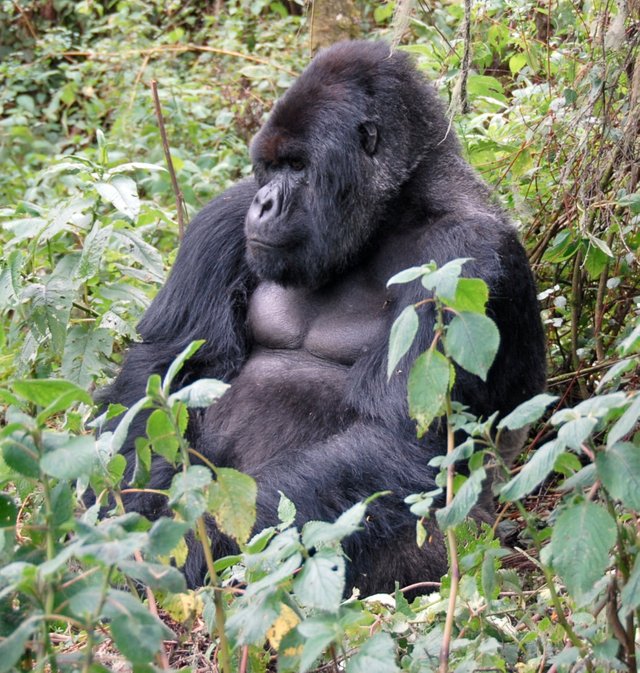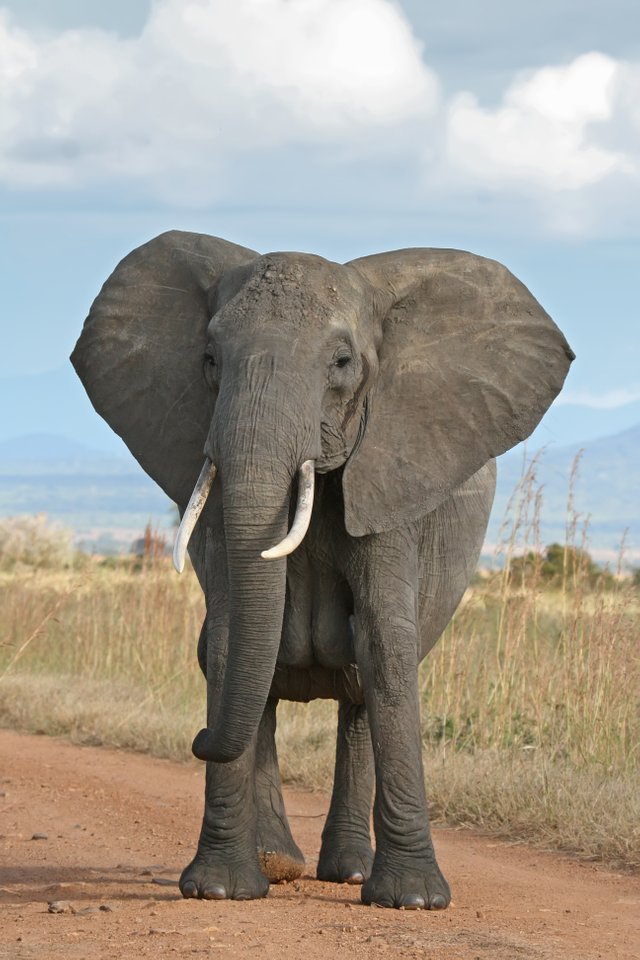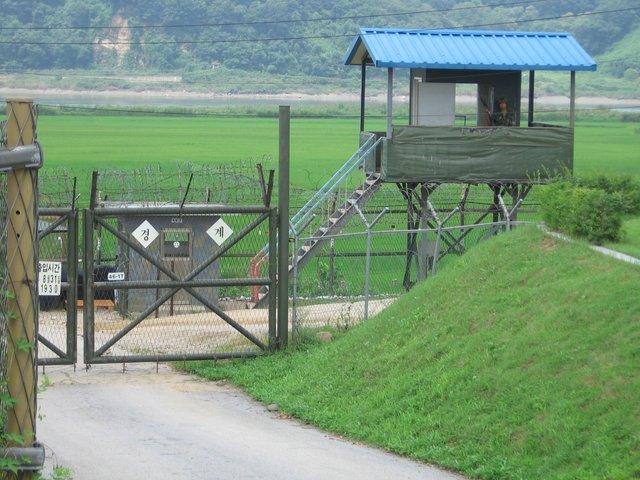According to new research, armed conflict is the best predictor of decline of wildlife in Africa, much more so than mining, corrupt governments or urban development
Most countries have seen a decline in their wildlife populations, and Africa is certainly one of the continents where there have been lots of stable species that have been pushed to near-extinction. There are many reasons for this, such as deforestation, mining operations, poaching and habitat fragmentation, but a recently published paper in Nature suggests that the biggest predictor of species decline is armed conflict.
This basically means that when war breaks out in an area, animals that live in the surrounding areas (even if the areas are protected), will have a population decline most of the time. This might seem obvious to many of you, but it has actually been heavily debated due to conflicting evidence. Some scientists believed it might be positive for the wildlife, while others believed it was a negative. It’s a good thing that a good research paper has been published about it now, ending the discussion.

Mountain gorillas are known to have experienced a sharp population decline as a result of armed conflict. If you’re interested, see the Netflix documentary Virunga. Image by f _proffer, posted with the Creative Commons Attribution 2.0 Generic license.
What the study found
The study took a close look at more than 250 populations of 36 different species of large herbivores African animals such as antelopes, hippos, rhinos, giraffes and elephants. The data was from different sources, but went back as far as 1946, giving them a good historic look at the decline of the animal populations. These populations were distributed among 126 different protected areas in 19 different countries in Africa, and during the period from 1946 to 2010, 70 % of these areas were affected by armed conflict.
This means that the researchers had both an affected group as well as a control group in the same study, which would make it easy to know if there was a significant population loss in the areas with conflict. By plotting all the data into statistical models, the researchers behind the paper figured out that there was a significant correlation between the population decline of large herbivores and the frequency of armed conflict. In other words; more frequent wars means a decline in animal populations.
It is very interesting to note that the research team also checked for many other possible correlations, but frequency of war was the best one. Even duration or intensity of war was lower, so the mere presence of an armed conflict was the strongest predictor. The conflict did not even have to be very large, and even “low-grade conflicts” showed to lead to a population decline. The scientists believed this was because the local people would be prepared for war, and would not prioritize wildlife conservation in this situation.

An Africa elephant, one of the animals that would experience population decline during wars. Image by Muhammad Mahdi Karim, posted with the GNU Free Documentation License, Version 1.2.
But let’s also learn about the good news
This paper does not only bring bad news, and there is in fact some good news from it. What they also found out was that armed conflict did not increase the species’ chances of going extinct – at least not in the short term. Their population numbers did indeed decrease a lot, but this would very rarely lead to extinction. After the conflict ended, the animals were still in protected areas, and would not suffer more damage.
Some conflict zones have improved wildlife
As I mentioned earlier, some scientists debated that conflict could improve the wildlife, and there are even examples of this, but these are not taken into consideration in the paper I wrote about today, since they are from outside of Africa. I do however think they are worth mentioning, and the best example is the Korean Demilitarized Zone (DMZ); a 250km long and 4km wide zone between North Korea and South Korea where no one is allowed to enter.

A checkpoint just before the DMZ. As you can see in the background, it looks a pretty okay place for birds and animals to live. Image by Johannes Barre, posted with the GNU Free Documentation License.
The DMZ is absolutely inhabitable for humans, but this has allowed the wildlife to go undisturbed for a long time, and it is now home to several rare and endangered species. Over 20,000 migratory birds use the zone, and there have been found both red-crowned crane and white-naped cranes here. Some reports also include the Korean tiger, a subspecies of Siberian tiger, as well as Amur leopard and Asian black bears, but none of these are confirmed.
Anyway, this goes to show that (armed) conflict can be a positive factors for the wildlife during certain conditions, which is why some scientists were skeptical as to whether or not conflict actually was a big factor for predicting wildlife decline.
Thanks for reading
If you are interested in threading the paper, all you need to do is click here. This was used as my main source for this post, but I also linked to the Wikipedia page about the DMZ “nature reserve” if you want to check that out.
I know it's not technically a conflict zone but the situation for wildlife I. Zimbabwe has been nothing short of awful. People there have been eating "bush meat" through the troubles. No animals were spared big or small. The game parks were especially hard hit. The example of the dmz in Korea shows that if nature is given even a little chance live will explode back after some time, there is hope .
That's for sharing your knowledge about how this has affected Zimbabwe with us, @tony10. When what you describe is considered to not even be a conflict zone, just imagine how it is for an area with even worse conditions. It's no wonder that there are many endangered animals when stuff like this happens.
Also, I just want to point out that I in no way blame the people who do this out of necessity; sometimes they have to do things like this in order to survive, and I feel so lucky that I'm home safe in front of my computer and writing about this without having to worry about how I should feed myself.
Anyway, thanks again for stopping by, @tony10! Your comments add a lot of value to my posts, and I appreciate that a lot.
I agree, people will do what they must to survive. Luckily armed conflict has reduced massively in sub saharan Africa over the last 20 years. Zim has a new leader who fingers crossed the situation will improve there also.
Yeah, it looks like things are beginning to be better for many parts of Africa, but there's still some regions that have a lot of problems. But let's cross our fingers and hope it will keep improving, and then both animals and humans can live a much better life!
Hey you gave him way more than me. :( Support #ceo lol
That is because @tony10 actually made the effort to write a good comment. I'm not anyone's personal upvote bot, so if you can't bother to write good comments, I won't bother with giving them upvotes. You either have to be a part of the community and provide us with your insights on the matter, or you can go somewhere else.
My comments are the best. #bias lol
In my 2 cent opinions, armed conflict b/w countries doesn't affect too much on wildlife (as you mentioned Korean Demilitarized Zone.) However civil war in the society may declined wild life population. During civil war economy of the country goes down, people don't find any thing to eat due to poverty and less resources, as a result they don't spare any animal. Other big reason might be Population growoth, low income of people/poverty, low resources of food, urban development, mining, diminishing of natural forest,industrialization, using of pesticides etc.
Nice post as always!
Even though I have a PhD in neuroscience, I distrust science most of the time. Often very cumbersome way to describe reality. For me it is pretty obvious that wars (especially the gerilja war that is epidemic in Africa) is damaging to wild life. The bush meat industry is growing every year, and I do not see that trend reversing given the explosive population growth in Africa, which will certainly lead to more tensions in the whole region. As just one example the giraffe is very vulnerable, because it is easy to catch and gives a lot of meat, and is now a vulnerable species.
Thank you, @janusface!
I see why you think of it as cumbersome; most research today is researching extremely tiny parts of a larger system, and it can be pretty challenging to piece it together to see the big picture.
The bush meat industry is pretty interesting to look at, because it does not only affect areas that are affected by war. I can't link a source about it, but I remember reading even export of bush meat had increased in the last few years, because people wanted this taste even after moving away from their home country where they got to know it.
Seriously here in Africa anytime war breaks out it is the Animals that suffers most.they are easier been kill
Yeah, it's very unfortunate for the animals there. But it is of course even as unfortunate for the humans; it's very bad that they have to live in conflict areas.
"The DMZ is absolutely inhabitable for humans, but this has allowed the wildlife to go undisturbed for a long time"
Obviously! We humans just find a way to disrupt nature.
very interesting your post! these photos are amazing, this old monkey looking soo cute
Thank you! The photos are not taken by me, but posted with licenses that allows me to use them for my posts.
@valth I want to upvote your every post, because I liked. But I have not enough steem power. Can you give me some tip how can I increas?
Sure! The best way is to write good posts every day. I find it to be much better to write one good post than 3 smaller, not as good posts, but something else might work better for other people.
In addition you should be active by commenting on other blogs; this gives you a chance to be upvoted, as well as getting to know people that will maybe follow you and upvote your posts. I always upvote good comments, so this is a nice way to earn some Steem Power for new members.
Also make sure to sell SBD on the internal market, and power up all the Steem you get! :)
ok @valth thank you so much for your tips, I will follow this tip. I try to good commenting and post.
You're welcome :)
ohk! this is great :)
Research says it all that what we should have to do next to save lifes of ourselves and also the animals. Thanks for sharing this nice info with us, just a thumbs up for you mate.
Yeah, we should just stop having wars, and both us humans and the animals will be in a better place :)
Thanks for stopping by, @faizii.
Youe welcome. thanks for the compliment.
Your reserch about this country affrica amazing and wonderfull much as appreciate you
GOD bless you
Thank you.
How do we help stop the war?
I wish I could tell you, but I don't think anyone has the solution to ending war in Africa.
Maybe our new #faceofsteemit can work on it?
This is the great research and its accurate, tot he point. In our country, monkey, greenery (e.g. Trees), dinosaur and elephant are almost obsolete. This is not only because of war but the people who is responsible for it.
Its good that some zones are craving to rebuild the environment again. Thank you dear for sharing this valuable information with us. You have enriched me in knowledge. Made my day :)
Thanks!